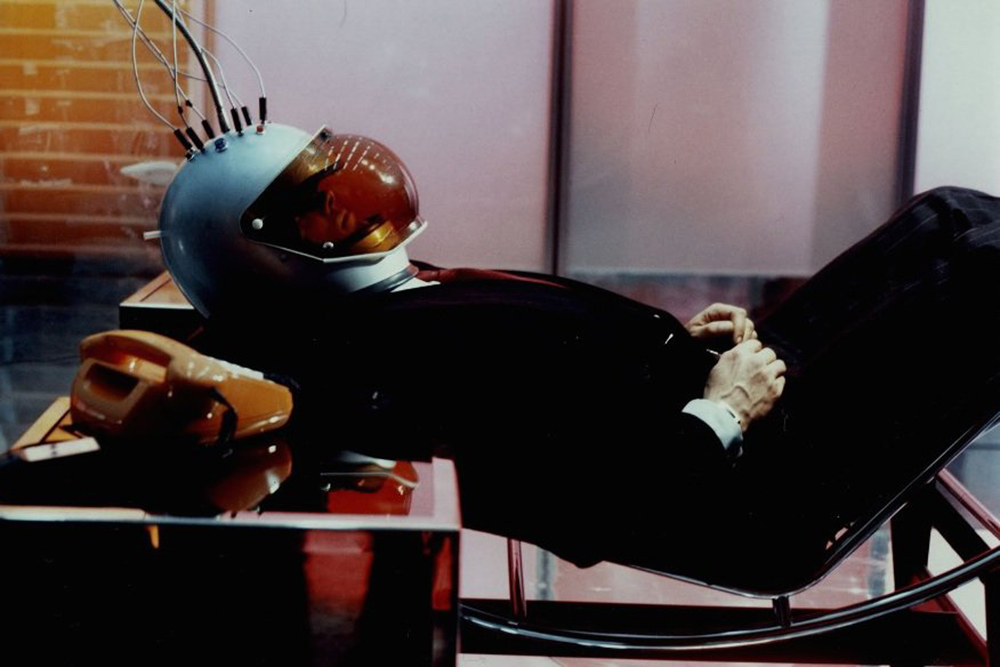Janus/Criterion has just re-released a beautiful print of Rainer Werner Fassbinder’s 1973 two-part film, World on a Wire, and I was fortunate enough to have 210 minutes free on a Saturday afternoon to watch it. It’s great.
Plot-wise, the film covers much of the same ground as The Matrix and Inception – although it was made 30 years earlier – but this aspect is covered pretty well by other reviews. That said, the themes of living in the dream-like reality of a world of simulacra – and the ultimate dream of escape to a higher reality – take on a special richness in Fassbinder’s work, infused with the pathos of counter-cultural 1970s Germans.
Visually, the entire film (originally shot in square 16mm for television, like an instamatic photograph) is beautifully fake, presenting the veneer of the world that was the 1970s: plastic molded offices full of plastic molded furniture and plastic molded people with plastic, blank faces – with the exception of our hero, Fred Stiller, the new Director of the Simulacron Project at the Institute for Cybernetics and Futurology. Stiller’s work, known as Simulacron 1, is the most sophisticated computer simulation ever made, a massive program modeling a world of 10,000 “identity units” for the purpose of making accurate scientific and government projections. It’s a planner’s dream: a simulated world where real life plays out for the purposes of forecasting future conditions and testing varios alternatives (“How much steel production will the economy require in 30 years?”; “Should we build more housing units in Baden-Württemberg or Schleswig-Holstein?”; and so on).
As events unfold – starting with the death of the previous director, which leads to Stiller’s promotion – he begins to notice nagging inconsistencies in both the virtual world he has created and the plastic world he inhabits, leading him to grow increasingly uneasy about the nature and the fabric of reality. The scifi twists are great (if somewhat predictable), but in the end the film provides much more than just a paranoid and mind-bending yarn: this is a movie concerned with metaphysical questions of what is real and what is illusion (and the related very important epistemological concerns of how we are to know); ultimately, Fassbinder (like Plato, quoted in a pivotal scene) is unwavering in his belief that it is possible for us to transcend the world of illusions and find enlightenment beyond.
(Note: this review originally appeared on the author’s CityState blog.)
